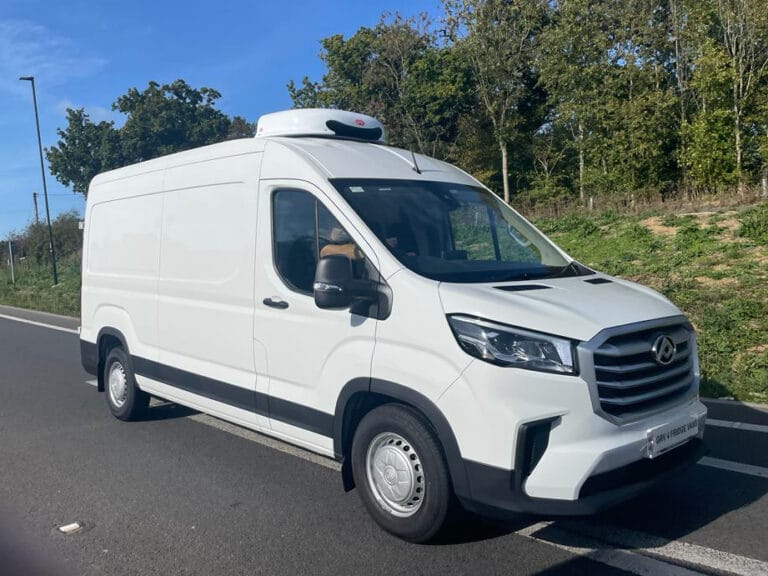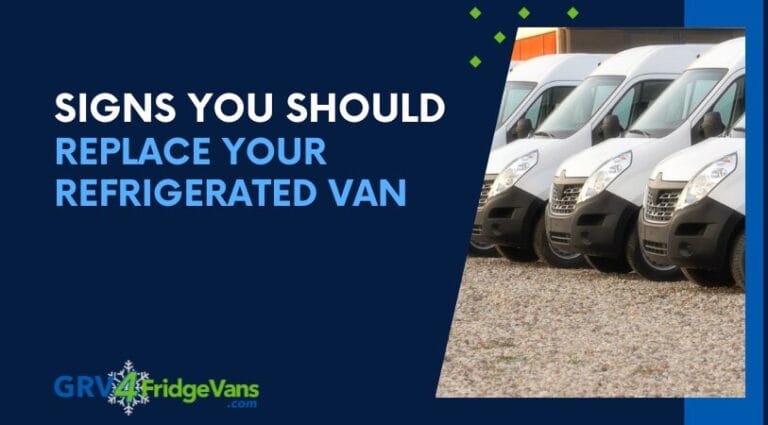Refrigerated vans are the lifeline of businesses that rely on the transportation of perishable goods, ensuring that products such as food, pharmaceuticals, and other temperature-sensitive items reach their destination in optimal condition.
Over time, wear and tear can impact the performance of a refrigerated van, potentially compromising the freshness and safety of transported goods.
This could have a considerable impact on your company reputation, so it’s important to be proactive when it comes to replacing your van. Rather than wait for the van to fail, you should learn to spot the signs that it might be deteriorating.
In this article, we’ll explore key signs that indicate it may be time to replace your refrigerated van, safeguarding the efficiency and reliability of your cold transport operations.

Inconsistent temperature control
A refrigerated van has one main job, so if it isn’t doing this very well, it’s time to look for a replacement. If you notice fluctuations in the internal temperature despite regular maintenance and adjustments, it could signal a failing refrigeration system.
It could also be a minor issue with the thermostat, so make sure you get this checked before you shell out for a whole new van. Sometimes it’s an easily fixable problem, but sometimes it’s a sign that the vehicle is on its last legs.
Inadequate temperature control can compromise the quality and safety of perishable goods, making it essential to address the issue promptly. You don’t want to wait for it to fail and risk letting down your customers.

Excessive wear and tear
Inspect the overall condition of your refrigerated van regularly. Signs of excessive wear and tear, such as rust, corrosion, or visible damage to the body and insulation, can be red flags.
These issues not only affect the van’s structural integrity but can also lead to temperature leaks, reducing the efficiency of the refrigeration system.
They can also damage your company image. People and other businesses will be less likely to trust the company that shows up with a rusted old van with peeling paint. By choosing a new van, you will also be investing in your company image, which can be incredibly important in the catering sector.
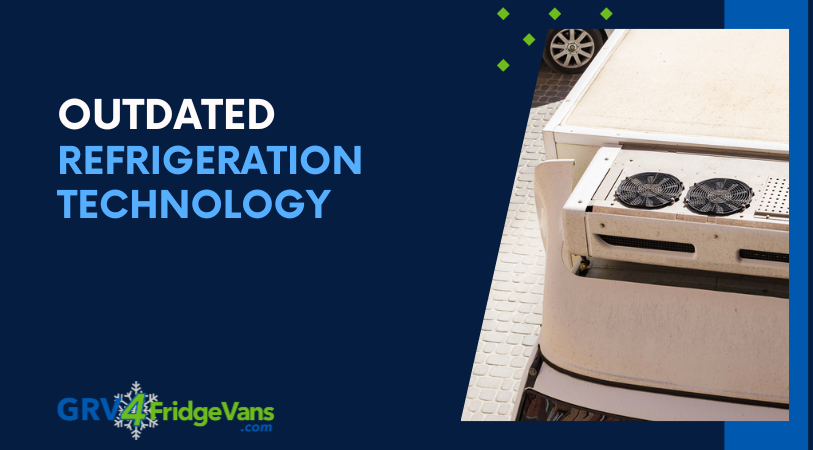
Outdated refrigeration technology
Advancements in refrigeration technology continue to improve the efficiency and energy consumption of refrigerated vans. If your van is equipped with outdated or inefficient refrigeration technology, it may be worthwhile to consider an upgrade.
Modern systems offer improved temperature control, reduced energy consumption, and better overall performance. You may also be able to upgrade to a van that offers dual zone temperature control, so you could have a chilled section and an ambient section, for example. This will offer greater flexibility and essentially turn your van into a multi-purpose transport.
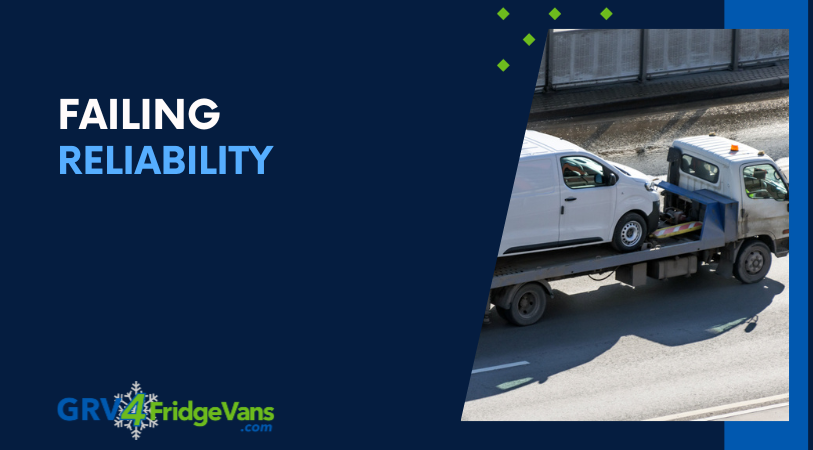
Failing reliability
Frequent breakdowns and the need for constant repairs can be a clear sign that your refrigerated van is reaching the end of its operational life. While routine maintenance is expected, a sudden increase in repair frequency and costs may indicate that the van is no longer a reliable and cost-effective option.
A breakdown while your van is loaded with food in the middle of the summer would be catastrophic for your business. You could risk losing thousands of pounds worth of stock and also let down valued customers. Your company reputation rests on your ability to deliver without fail, so don’t let your van stand in your way.
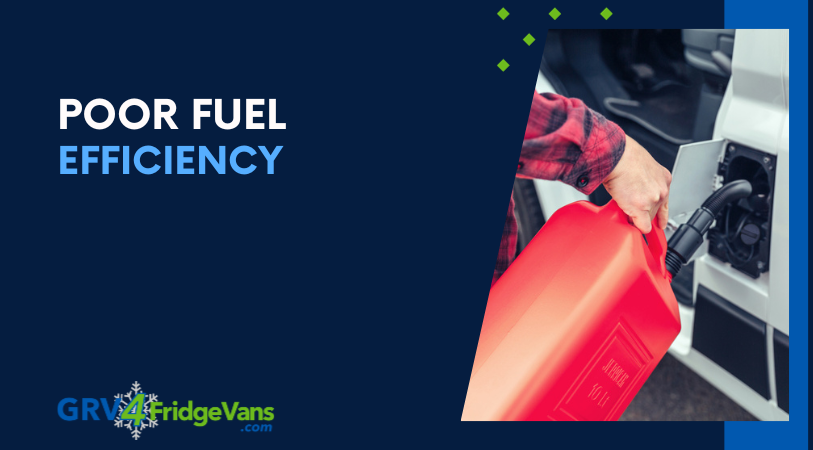
Poor fuel efficiency
As refrigerated vans age, their overall fuel efficiency may decline. If you notice a significant decrease in fuel efficiency despite proper maintenance, it could be a sign that the van’s engine and other critical components are no longer operating optimally.
Upgrading to a newer, more fuel-efficient model can result in long-term cost savings. You could also consider upgrading to an electric or hybrid vehicle. This will provide cost-saving benefits that will help increase your profit margins.
While petrol and diesel vehicles are still widely available, driving a less efficient van will come with some extra penalties, such as the ULEZ charge. We can expect these measures to keep expanding in the coming years, and we can expect to eventually see the ban of diesel vehicles. Why not get ahead of the regulations and invest in an electric vehicle now?
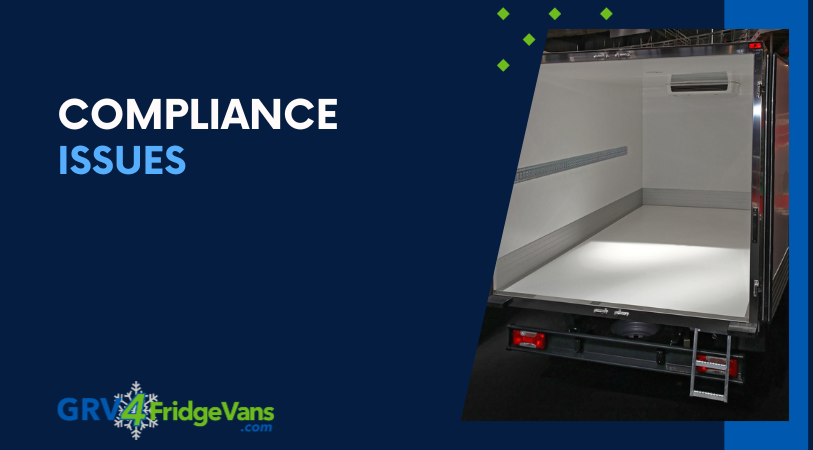
Compliance issues
Stringent regulations govern the transportation of perishable goods, and refrigerated vans must comply with industry standards to ensure the safety of transported items.
If your current van no longer meets these regulations, it may be time to consider a replacement to avoid legal complications and maintain the reputation of your business. Remember that your van should function as an extension of your business premises, so you need to make sure it’s up to scratch.
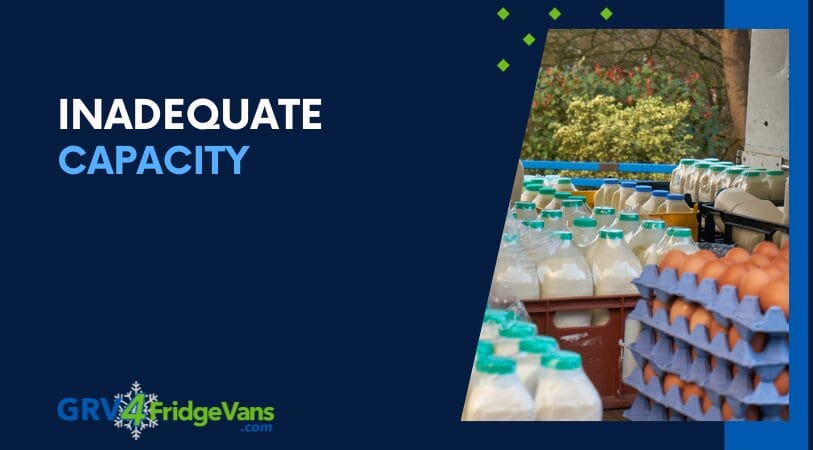
Inadequate capacity
As your business grows, so does the demand for transportation capacity. If your current refrigerated van no longer meets the volume requirements of your expanding operations, it may be more cost-effective in the long run to invest in a larger vehicle rather than retrofitting or overloading your existing one.
When choosing a van, don’t just think about your current demands. You should also think about the long-term plans for your business. Don’t limit your growth by choosing a van that only just meets your requirements. You can future-proof your business by choosing a van that is a little larger than your current needs so you have room to grow.
Conclusion
Your van is essential to a successful business, so you want to make sure it can keep up with your demands. Regularly assessing your van for signs of wear and tear will help you to be proactive instead of reactive when it comes to sourcing a replacement.
Signs such as inconsistent temperature control, excessive wear and tear, outdated refrigeration technology, increased repair frequency, poor fuel efficiency, compliance issues, and inadequate capacity should prompt serious consideration of a replacement.
By proactively addressing these signs, you can ensure the reliability and efficiency of your refrigerated van, ultimately safeguarding the quality and safety of the perishable goods your business transports.
